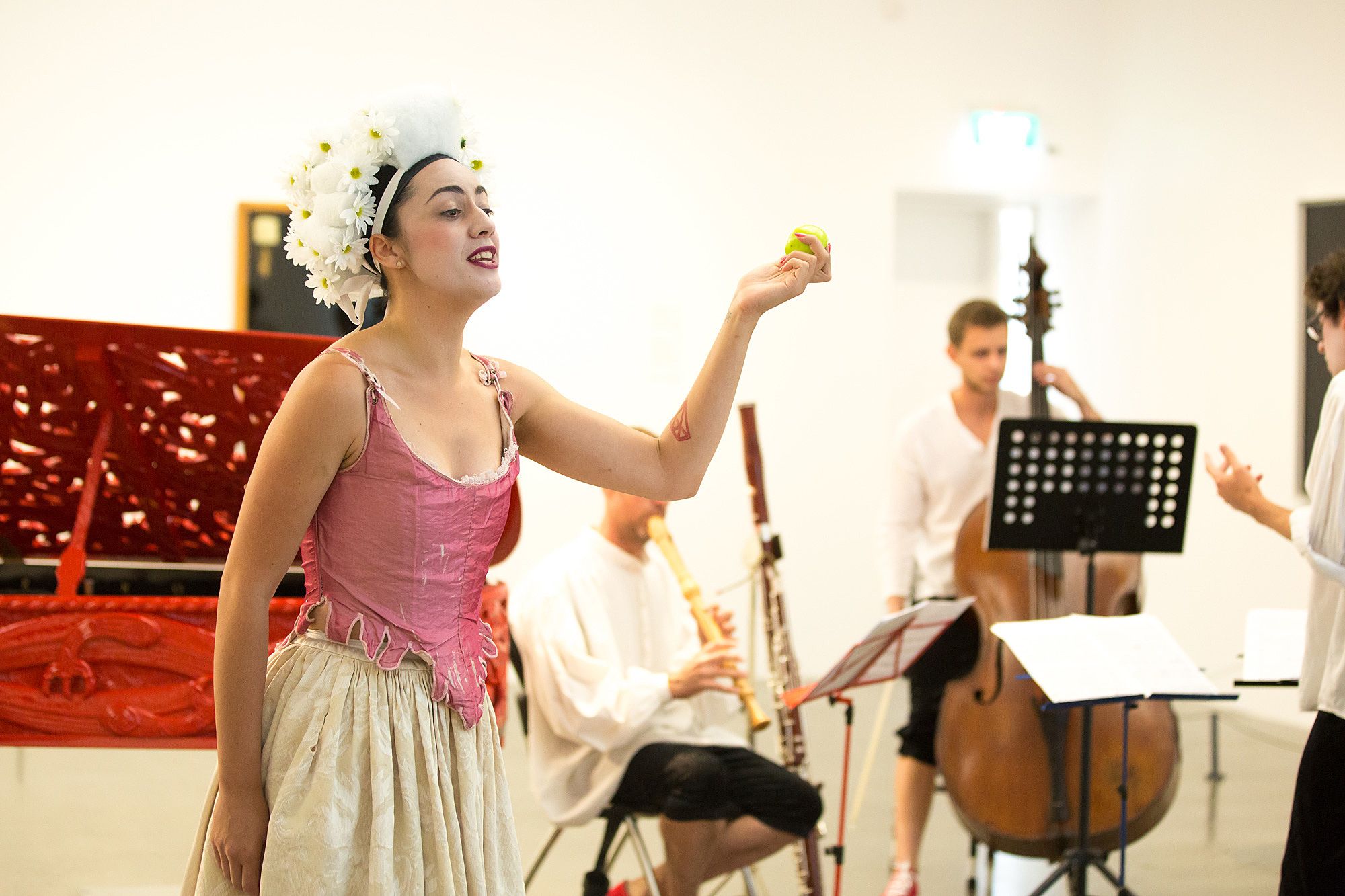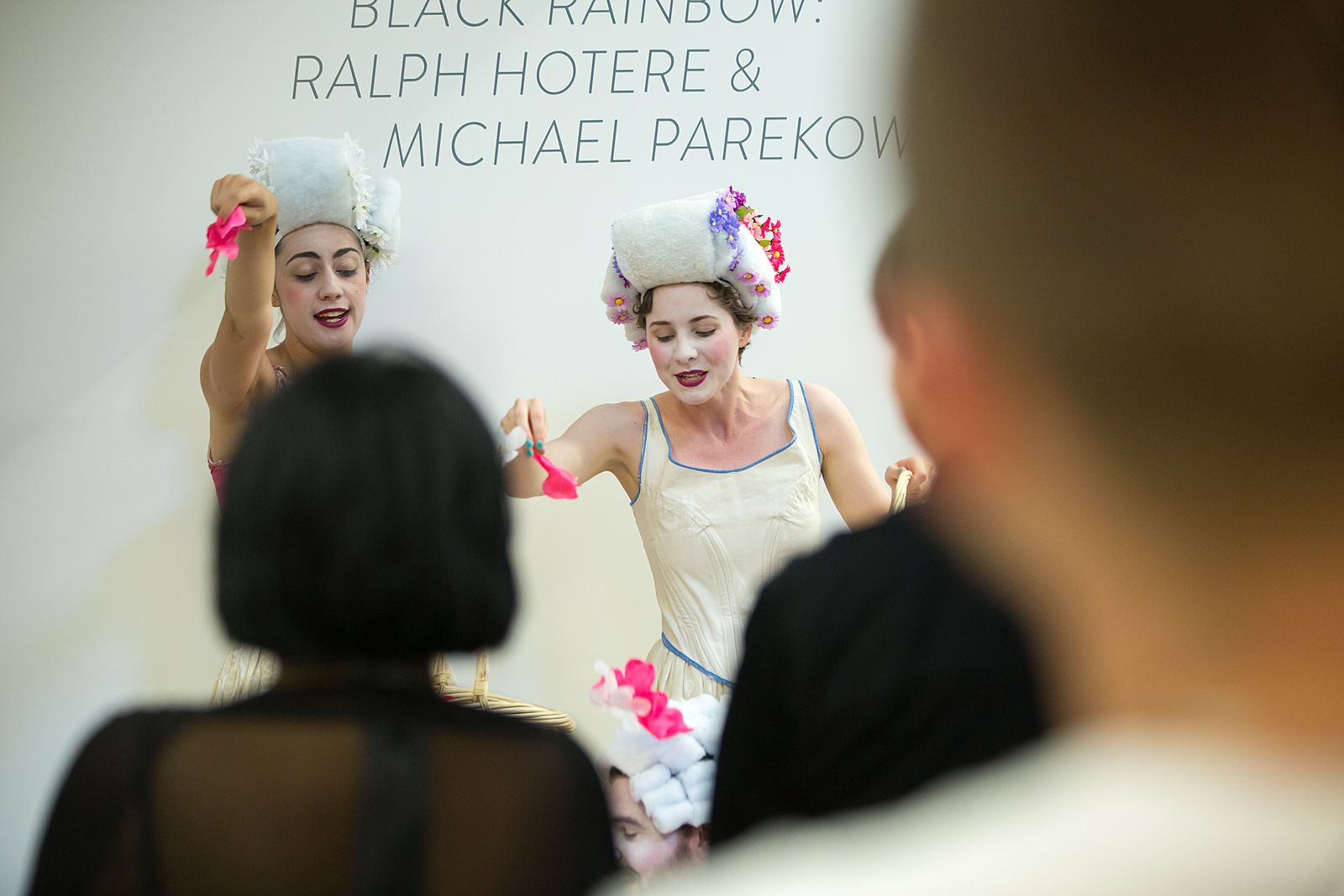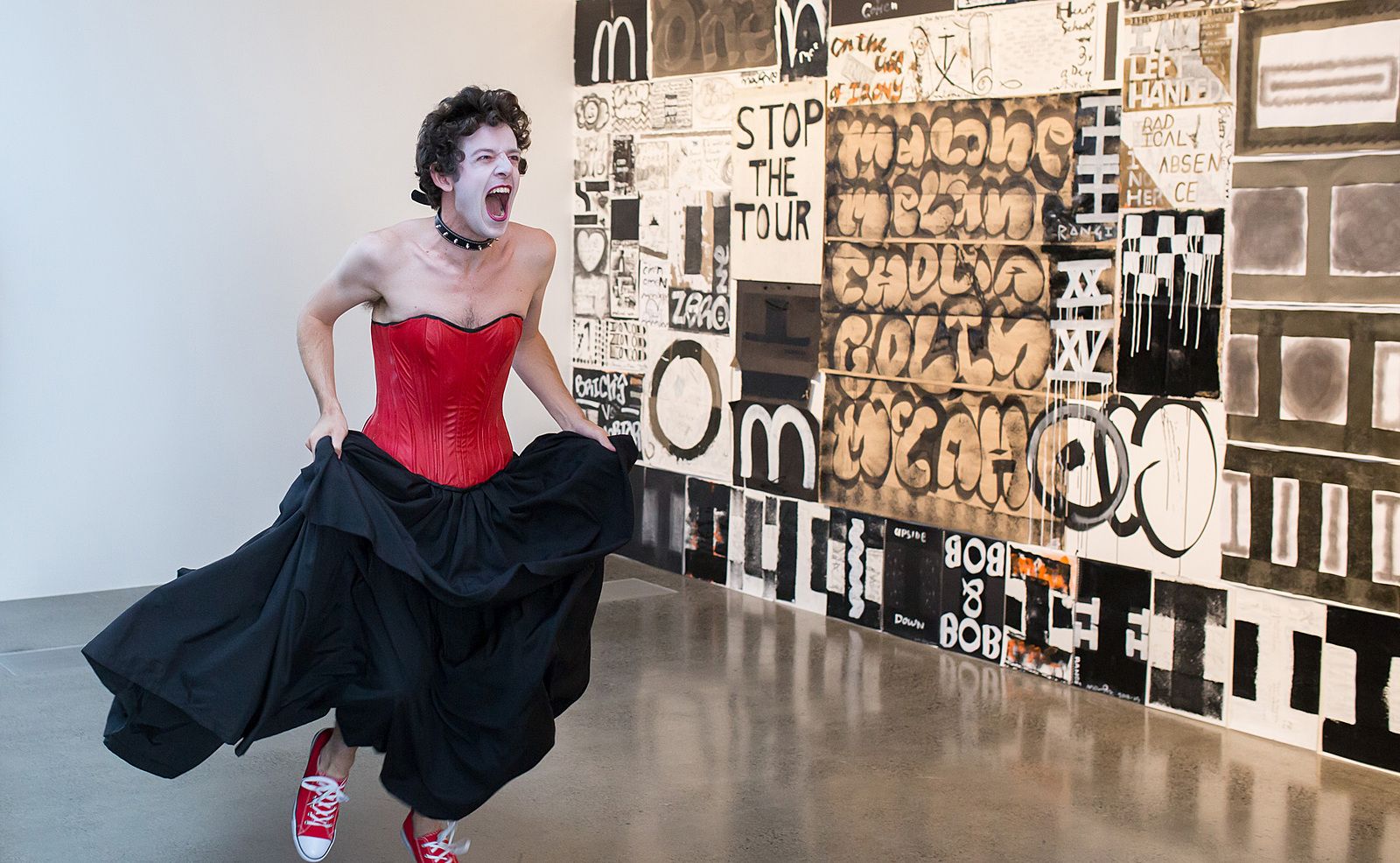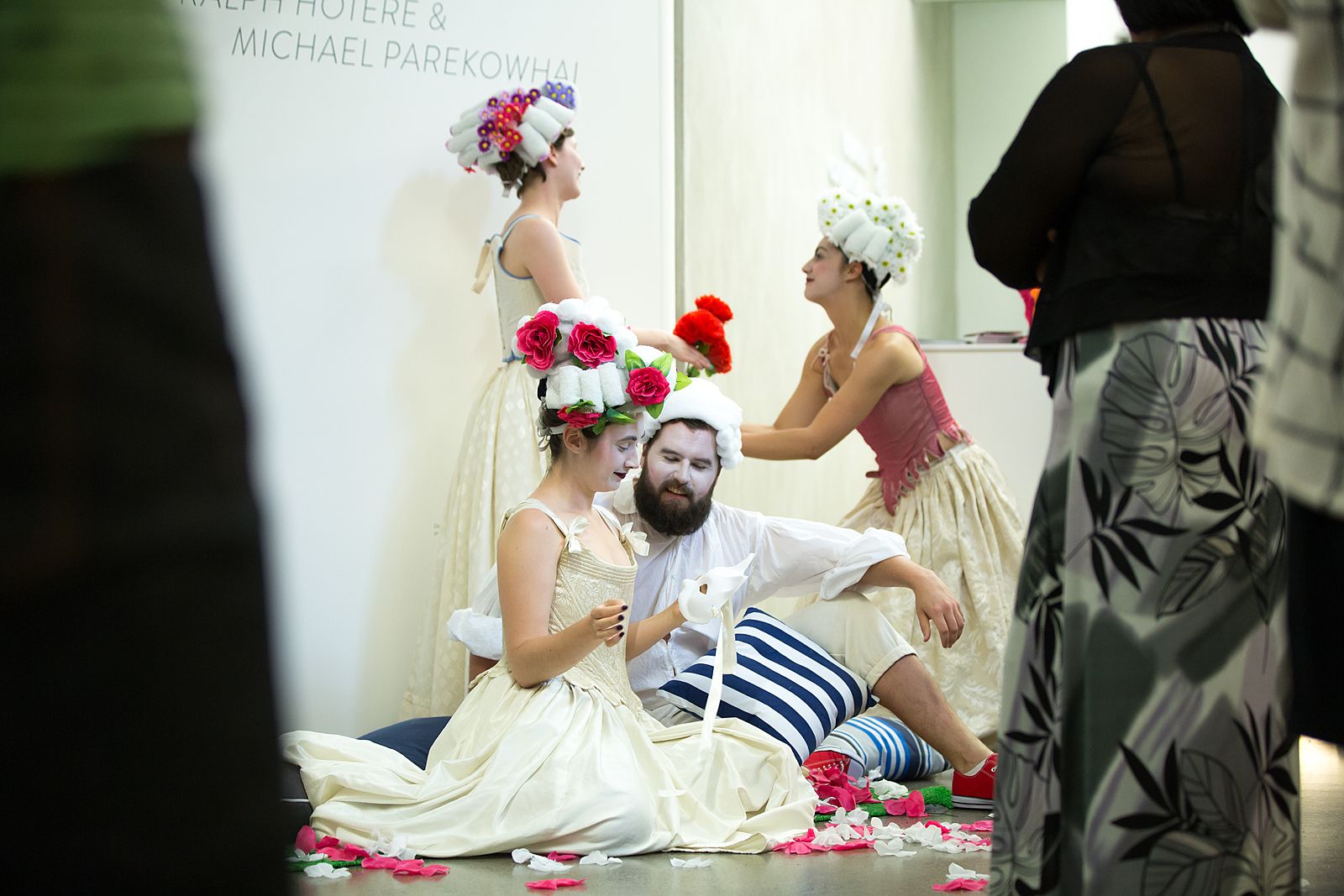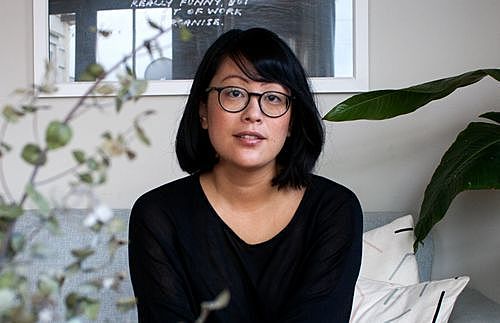Anarchy at the Opera
Opera has long been associated with pearls and fur, but a small Auckland company are giving it an unexpected alternative life.
Opera has long been associated with pearls and fur, but a small Auckland company are giving it an unexpected alternative life.
It’s Monday evening at the Basement Theatre. Freshly delivered kegs sit stacked at the top of the stairway against a glossy patchwork of Comedy Festival posters. Upstairs, a small group stands clustered on a bare stage. “You guys have just had sex, you’re blissed out,” director Frances Moore is telling two of them. “If this was a different context, there’d be beer around.”
“Or pot,” chimes in the music director, composer Alex Taylor. He’s standing by a keyboard, clutching a sheaf of sheet music.
“You have these.” Frances hands over a wicker basket of torn up scrap paper. They’re to be rose petals. The cast nod and begin the scene. Tightly arranged around each other, they look elegant, untouchable, a marble sculpture in jeans.
The four are rehearsing a scene from a reimagined version of Henry Purcell’s 17th-century Dido and Aeneas. It’s the first opera to be staged at the Basement Theatre, and it’s taking over the entire building. Each night, no more than 65 people will be led through the mainstage theatre to the bar to the studio upstairs in an immersive promenade experience of this classical tragedy.
Alex – who, in addition to composing the music, will be leading the live band each night – has kept the vocal lines and stripped away the instrumental section. The original music is “subversive and full of tension and emotion and quite radical for it’s time,” and in reimagining the work, he wanted to say true to its chaotic spirit, throwing in “all sorts of weird, random things.” Think Klaus Nomi ( “a crazy 1980s synth God countertenor”), Stravinsky and Thelonious Monk. “It’s an opera that mixes baroque melodic lines with Beyoncé,” explains Frances.
It’s a pairing that underscores her attraction to the show itself. A trained singer, she spent years studying roles without agency: “women who have no power over their sexuality, their lives.” Dido and Aeneas presented something more complex. Based on Virgil’s Aeneid, it follows the Queen of Carthage, who falls in love with a shipwrecked prince. His native Troy has been captured by the Greeks, so he’s fled, and he’s found love. But then some (literal) witches trick him into leaving.
We’re still intrigued by that narrative and the relationship between loving someone and losing personal power
“[Dido’s] a really curious figure in the canon, because she’s incredibly powerful – especially in the music she has – but she still decides to kill herself at the end.” Frances was taken by this dissonance, especially in terms of what it means to tell a story like this in 2016 and why "we’re still intrigued by that narrative and the relationship between loving someone and losing personal power.”
*
There’s a point halfway through the conversation where Alex describes Purcell’s Dido as ‘disruptive’. It’s the language of start-ups, and an entirely fitting evocation because Unstuck Opera’s own vision feels reactionary, agile and young. It’s even in their name. “It actually came from my dad,” says Frances. He had a consultancy by the same name and it, well, stuck.
Linguistic inheritance aside, she does feel that elements of opera need provoking. “I get really frustrated that the canon of works is increasingly small. We have a stable of twenty operas we might feel comfortable doing. And I look across at theatre and I’m jealous of the fact that they don’t have to justify performing a work that’s either 400 years old or four years old. They don’t even have to have a conversation to say ‘that’s okay’, whereas in our industry, we really do have to convince people that contemporary opera is legitimate.”
“It’s almost the opposite in theatre,” adds Alex, who’s also currently writing an opera based on David Herkt’s The Last Delirium of Arthur Rimbaud as part of Unstuck’s next show. “You have to justify doing something historical because it’s expected it’s contemporary.”
Frances worries that this attitude will reinforce a narrative where people will think that audiences will only come to Verdi or Mozart. “I’m sure they’ve got economic proof of that, but it’s only based on one model of performance.” It reinforces a certain idea of what the opera is. “We expect opera to be in really big venues, which come with really big budgets. We demand that it’s a full symphony orchestra, we often import singers from overseas, and I kinda think, well, why can’t the picture be a little more diverse, and why aren’t operas being put on in smaller venues? What’s wrong with having four singers and a rearrangement for a much smaller band?”
And why not have fun while you’re at it? “I don’t know what’s wrong with having a sense of humour,” shrugs Frances. “It’s that thing where if you’re having fun or being a bit wry, they think you’re-”
“Taking the piss,” says Alex.
“Being a bit too light,” Frances offers. The perceived incompatibility between doing good work and having fun is something she struggles with. “I mean: I take this incredibly seriously. I’m trying to be an opera director. That’s economic insanity, but, you know, I’m not without passion for my field. But I also think we can love things by holding them lightly and enjoying them and thinking: this is frickin’ fabulous.”
We can love things by holding them lightly and enjoying them and thinking: this is frickin’ fabulous
It’s also how you bring people in. “When we talk about ‘the opera’ and going to ‘the opera’, that kind of says it all,” comments Alex. Despite being a career composer, even he hadn’t been an opera person until Frances approached him with the project. “I was like: opera’s over there,” he gestures as far as his arm will stretch, “and I’m here.” He shakes his head. “I can imagine that for a non-music person it’d be even more potentially alienating, whether that’s real or just perceived.”
What the pair hope to do is to make work they want to see: work that excites them, that reflects who they are, and that their friends would want to watch. But how do you contemporise an old art form? What gets retained, and what can you lose?
For Frances, it’s all about the singing voice. Everything else is negotiable. “There’s nothing more powerful than someone standing in front of you and singing. It’s so intimate. It’s so exposing. It invades your body as an audience member.” And yet, despite it being such a trembling, visceral experience, “we often try really hard to remove that from our audiences. We create as much space as possible.” It’s a gap she wants to close.
There’s nothing more powerful than someone standing in front of you and singing. It’s so intimate. It’s so exposing. It invades your body as an audience member
For Alex, opera has another special quality: total fantasy. “It’s outside the realms of realism.” He contrasts it with musical theatre, which often tries to approximate reality, not always to great effect. In opera, “someone’s standing at the front of the stage singing about something, which doesn’t happen in real life, so I think that element of the stylised – the fantastical – has to be at the centre of whatever operatic adventures you’re undertaking.”
So here they are: staging a roving Dido and Aeneas for 65 people each night, where there are strains of jazz, 1920s music hall, and Beyoncé in a performance that’s only 60-minutes long (“I like a good, sharp show”), where the aria will be delivered at full force only metres away from you, and where it only costs $25 (or $15 if you go on Wednesday). On these factors alone, it’s like no other opera being staged in this country.
“But what a luxury,” Frances is quick to acknowledge. Creating an intimate opera like Dido is not without sacrifice. “It also means we have no budget, we’re paying people very little money, despite their expertise, and big opera companies don’t have that kind of luxury.” But it’s something they’d like to work at, to turn Opera with a capital O into a regular night out where you can have your show and your pint of Brothers Beer, too.
This forthcoming season at The Basement will be the show’s second outing, following a slightly different debut at Te Uru Waitakere Contemporary Gallery last year. “Te Uru was this grand, white, pristine, huge multi-levelled space,” says Alex, “and the Basement is this dingy, dark, tiny, cramped theatre.” There will be no Michael Parekowhai piano, no Ralph Hotere backdrop. “The tone of it will change and the staging will be more compact and even closer to the audience. I think some elements will carry over, but there’ll be lots of new angles on it.”
“Being in a small box with a raw human voice…” Frances trails off, her expression a combination of trepidation and delight. “It could be a disaster, of course! Those are some big voices. It could be,” she laughs. “Overwhelming.” But whatever it is, it’s likely to be unlike anything you’ve seen. “I hope the spirit will still be the same,” she adds after a pause. I ask her what that spirit is and she doesn’t need to think twice. “Anarchic."
Dido and Aeneas: Recomposed
Basement Theatre
17-21 May
Tickets available through iTicket
